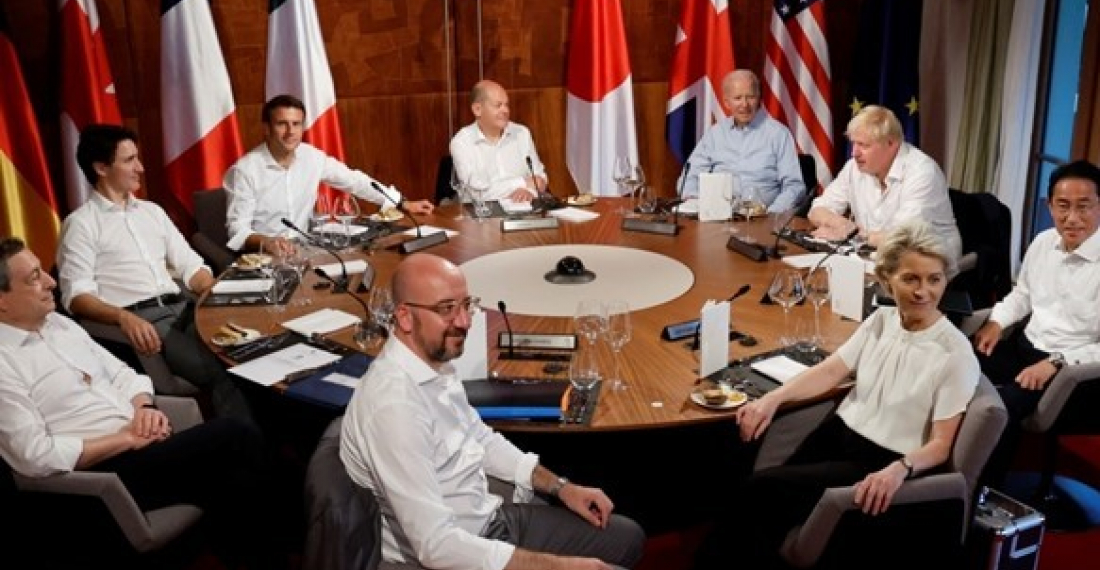It is a busy week for Western leaders, as they prepare the next steps in response to Russian aggression in Ukraine. The leaders of the G7 - Canada, France, Germany, Italy, Japan, the United States and the Untied Kingdom, together with the European Union - started a summit meeting in Germany on Sunday. Later this week they will travel to Madrid for a summit meeting of NATO countries.
The G7 meeting is taking place at a Castle in Germany’s Bavarian Alps were leaders went out of their way on Sunday (26 June), to show that they are united against Russian President Vladimir Putin’s invasion of Ukraine while discussing ways to minimize the war’s effect on rising global food and energy costs.
U.S. President Joe Biden and German Chancellor Olaf Scholz met ahead of formal talks that also included the leaders of Britain, France, Canada, Italy, Japan and the European Union.
Scholz said, "Germany and the U.S. will always act together when it comes to questions of Ukraine's security, and we made that clear once more."
"The summit must send not only the message that NATO and the G-7 are more united than ever,” Scholz recently told the German parliament, “but also that the democracies of the world stand together against Putin's imperialism just as they do in the fight against hunger and poverty.”
In a pre-summit show of force, Russia launched new missile attacks Sunday on Ukraine’s two biggest cities, the capital of Kyiv and Kharkiv, even as the G-7 leaders held talks to determine new ways to isolate Moscow.
Biden announced the G-7 nations would ban new imports of Russian gold, the latest in an array of sanctions Western nations have imposed on Russia in an attempt punish it for Putin’s invasion of Ukraine, now in its fifth month.
Aside from discussions about the ongoing fighting in Ukraine, the G-7 leaders announced a $600 billion infrastructure initiative – a third of it from the United States – that aims to give developing nations an alternative to China’s Belt and Road infrastructure initiative.
Biden called it “an investment that will deliver returns for everyone, including the American people and the people of all our nations. It’ll boost all of our economies, and it’s a chance for us to share our positive vision for the future and let communities around the world see themselves — and see for themselves the concrete benefits of partnering with democracies.”
After the three-day G-7 summit, the world leaders will travel to Madrid for a NATO summit.






